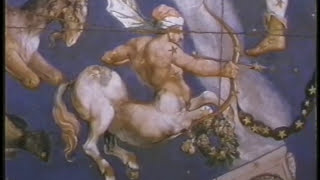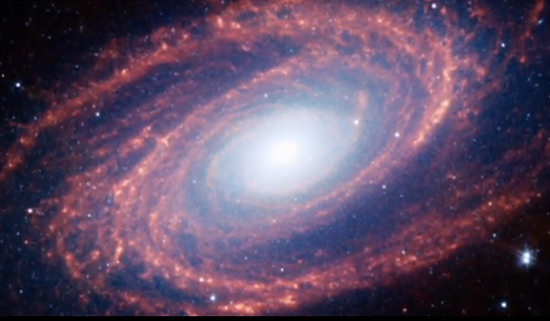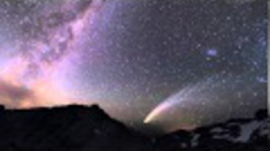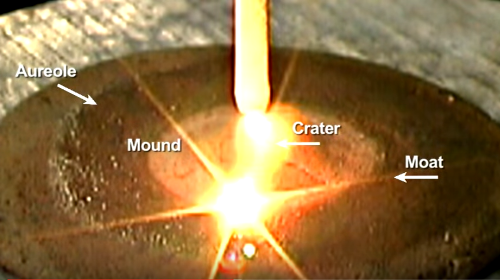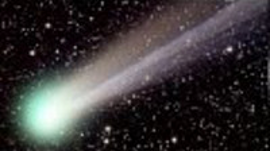Editors Note: The Bentham Open Astronomy Journal has now published a “Special Edition” with a focus on Plasma Cosmology. A peer-reviewed journal, its goal is to publish quality papers rapidly and to make them freely available to researchers worldwide. The following article by Wallace Thornhill, chief science advisor of the Thunderbolts Project, offers a comprehensive overview of the Electric Universe paradigm and its challenge to conventional astronomy and cosmology.
Abstract: A real cosmology must be a broad and coherent natural philosophy. It may always be incomplete, based on our limitations, but to be valid there can be no exceptions in our experience. In particular, cosmology must address issues of life and the human condition. Therefore it must be a truly interdisciplinary pursuit. Modern specialized science is a hostile environment for such a quest. For example, the world’s largest professional body, the Institute for Electrical and Electronic Engineers (IEEE), recognizes plasma cosmology while it remains unheard of by students of astronomy. Plasma cosmology receives no publicity although it deals empirically with the electromagnetic behavior of plasma, which constitutes almost the entire visible universe. Unlike theoretical big bang cosmology, plasma cosmology can claim successful predictions without recourse to hypothetical matter, energies and forces. However, despite its many successes, plasma cosmology cannot claim to be the final answer because it does not deal with unsolved problems in basic and stellar physics. The new Electric Universe cosmology addresses those fundamental problems and in doing so offers a breakthrough in understanding of ourselves and our place in the universe. It provides practical insights for broad scientific progress and space exploration. The Electric Universe is a convergent, interdisciplinary cosmology that attempts, in the words of E. O. Wilson, “consilience,” or “the unity of knowledge.”
1. REMARKS ON THE STATE OF COSMOLOGY
The discarding of an old prejudice and the cultivation of a new outlook are not matters that can be completed in a moment. One first catches a glimpse of a new way of regarding things, and begins to see a few outstanding features of his surroundings in a new light. But he does not immediately realise that the whole scene has been transformed. Deepseated beliefs remain, incompatible with the new outlook though they may be, and only gradually begin to take on a strange appearance and arouse misgivings. —Herbert Dingle, Astronomer Royal [1].
Cosmology is defined as the study of the origin, history, structure and dynamics of the universe. As such it provides a global context for both our science and culture so that cosmology is sometimes called ‘the queen of the sciences.’ To live up to this title, cosmology must be a broad and coherent natural philosophy since to be valid there can be no exceptions based on all of our experience. In particular, cosmology must address issues of life and the human condition. So cosmology must be a truly interdisciplinary pursuit. Modern specialized science is a hostile environment for such a quest. Stephen Hawking epitomizes the problem when he confidently asserts, “philosophy is dead” [2]. Specialized mathematical theorists have usurped cosmology. It is one field where imagination reigns unchecked by principles, epistemology, observation or commonsense. A philosopher retorts to Hawking, “These thinkers appear unworried–blithely unfazed, one is tempted to say – by the fact that their theories are incapable of proof or confirmation, or indeed of falsification as required by Karl Popper and his followers. After all, it is the peculiar feature of such theories that they posit the existence of that which at present, and perhaps forever, eludes any form of confirmation by observation or experiment” [3]. If natural philosophers are no longer in the vanguard of cosmology perhaps it is because there is no advantage in being the leaders in a rush to nowhere. “Who, indeed, are we as a species to dare ask such mighty questions as concern the origin of the universe and in unique arrogance believe we may have the correct answer within cosmic microseconds of the asking” [4]. Despite the media hoopla, there is no real cosmology at the beginning of the 21st century.
There are major issues that must be addressed. The biologist Rupert Sheldrake has carried out experiments that confront our mechanistic view of biology. His commentary applies particularly to cosmology:
“It is interesting that the roots of the 17th-century mechanistic world view can be found in ancient mystical religion. Indeed, the mechanistic view was a synthesis of two traditions of thought, both of which were based on the mystical insight that reality is timeless and changeless. One of these traditions stems from Pythagoras and Plato, who were both fascinated by the eternal truths of mathematics. In the 17th century, this evolved into a view that nature was governed by timeless ideas, proportions, principles, or laws that existed within the mind of God. This world view became dominant and, through philosophers and scientists such as Copernicus, Kepler, Descartes, Galileo and Newton, it was incorporated into the foundations of modern physics.
Basically, they expressed the idea that numbers, proportions, equations, and mathematical principles are more real than the physical world we experience. Even today, many mathematicians incline toward this kind of Pythagorean or Platonic mysticism. They think of the physical world as a reification of mathematical principles, as a reflection of eternal numerical mathematical laws. This view is alien to the thinking of most of us, who view the physical world as the “real” world and consider mathematical equations a man-made, and possibly inaccurate, description of that “real” world. Nevertheless, this mystical view has evolved into the currently predominant scientific viewpoint that nature is governed by eternal, changeless, immutable, omnipresent laws. The laws of nature are everywhere and always” [5].
The dominant belief in immutable, universal mathematical laws keeps us in the dark, as witness the reification of hypothetical mathematical constructs like ‘dark matter,’ ‘dark energy’ and ‘black holes.’ In the words attributed to Artemus Ward: “The researches of many eminent scientific men have thrown so much darkness upon the subject, that if they continue their researches we shall soon know nothing.” Mathematics may describe observed behavior but it cannot explain it. Having mathematical laws of physics does not equate with understanding of those laws. They may require redefinition with better understanding. For example, we have a cosmology built upon equations for gravity and quantum mechanics but with no real explanation for either. The words of the Astronomer Royal, Herbert Dingle, in 1951 still apply to cosmologists today:
“…they were completely deceived about the extent and nature of their achievements. They thought they were approaching the end of their task of discovering the causal laws that governed the world of material substance: actually they were at little more than the beginning of their task of understanding the world of experience. Thinking they knew almost everything, they in fact knew next to nothing” [1].
Now Available – Stars in an Electric Universe DVD
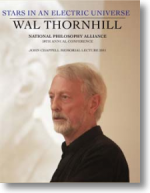
This outstanding lecture delivered by Wallace Thornhill at the NPA 2011 Conference is now out on DVD!
See our resources page for more information.









